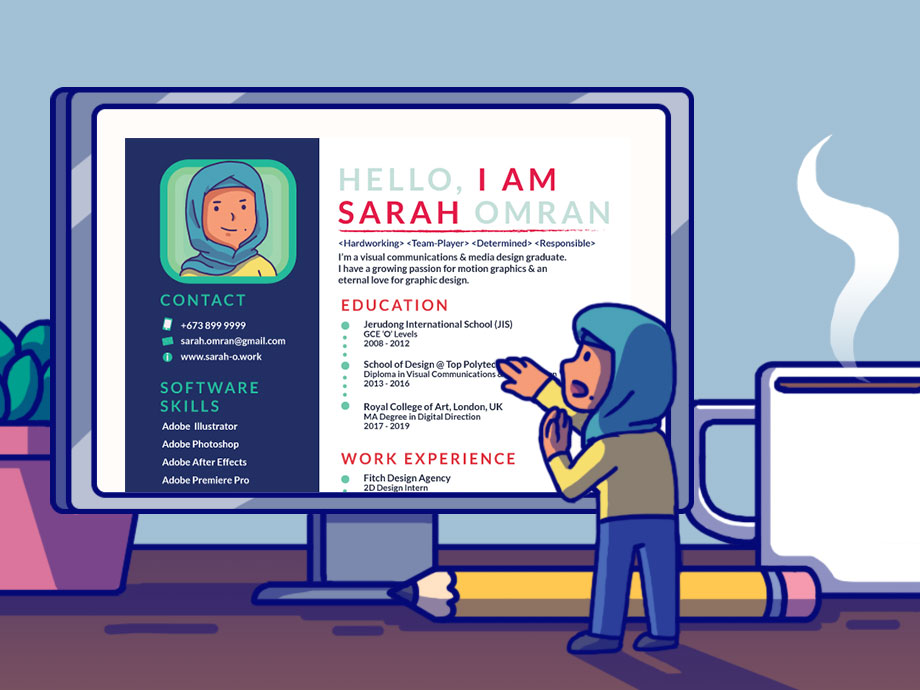Career & Education | Life | Article
Freelance Survival Tips For Beginners
by The Simple Sum | 7 Dec 2020 | 5 mins read

To the uninitiated, many aspects of the freelancing life – the unmitigated freedom of being your own boss, unchained from the dull rigor of a nine-to-five job – is frequently romanticized and glossed over by social media influencers, making it easy to envision gig working as the perfect vocation for routine-weary souls.
Without downplaying its merits, there are clear advantages of being free from the constraints of being a full-time employees: You get to decide your own workload, choose the people you work with, broaden your skill sets and experiment with your craft. Combined with the added room for personal growth, the rewards can far outweigh the risks.
The challenge is that it requires you to fulfil a unique set of responsibilities, which if unmet, can easily derail your life and become a nerve-wrecking nightmare. Most of the uncertainty you’ll face as a gig worker will stem from income volatility, so we’re going to take a look at some of the ways you can manage your finances as a freelancer:
Know your worth and charge accordingly
It pays to research freelance rates that are on par with your skill and experience level. If you’re new to the gig economy, it’s only natural that you’ll be building your portfolio from scratch and charge lower rates. The more you hustle and enhance your portfolio, the more you’ll be able to charge.
If you have a bit of experience, don’t be afraid to walk away from clients that aren’t willing to meet your asking price. The last thing you want is to waste valuable time on underpaying clients that leave you feeling exploited and burnt out. Don’t lowball yourself. Go for clients that value you as a professional and are willing to put the right price on your time and skills.
Always demand pre-work deposits
A common and inevitable pain point shared by gig workers is complications arising from payments, or god forbid, a lack thereof. In worst-case scenarios, an unscrupulous client can leave you broke, holding a stack of overdue bills in your hands and no monetary relief in sight.
Upfront payments are like deposits where the client pays for part (or sometimes all) of your services before it’s completed. Most of the time it won’t be possible to ask for full payment upfront as it tends to scare off clients.
Some form of upfront payment, for example 50% of the total fee, will go a long way in guaranteeing that you’ll be paid the remainder once you deliver. In other words, if they don’t pay, they don’t get the goods.
Allocate a budget and track cash flows religiously
It can’t be understated how important it is to design a budget and stick to it. You’ll be managing a fluctuating income, so it’s crucial to record your ins and outs. Split your expenses into main categories such as utility bills, transport, food or groceries. There are plenty of mobile apps to aid this process.
Try out budgeting strategies, for example the 50/30/20 budget or zero-based budgeting, and see which one works for you. The 50/30/20 budget involves spending 50% of your income on necessary expenses, 30% on non-compulsory expenses and the remaining 20% on savings.
Zero-based budgeting is more intricate in terms of planning, where you allocate every dollar to a specific purpose until your balance is zero. This includes putting aside some funds for your savings, so don’t go spending it all. It’s about making sure every dollar is accounted for.
Last but not least, it will help tremendously to channel your inner control freak to review your budget on a regular basis. Put in the time to track your expenses and make sure you’re staying on top of your goals. You’ll struggle less, and be in a better position to put your mind at ease.
If you’re freelancing full-time, separate personal and business accounts
When you don’t have consistent income, having separate bank accounts for personal and business use may not be on the cards. If you’re able to, it’s advisable to follow this step as it can help you draw the line between your earnings and business expenses and your personal expenses.
It’ll save you a lot of valuable time when you’re tracking your budget to see if you’re meeting your income targets – time that can actually be spent working on projects.
Set up automatic deposits for savings
Emergency funds can be a lifeline should bad things happen (they usually do), so it’ll be worthwhile to set up automatic deposits for your bank account. It’s a no-brainer; a painless ‘set-and-forget’ approach that will save you time and effort moving around funds. And should your car break down and take a huge chunk out of your expenses, you’ll have your ‘rainy day fund’ to thank.













